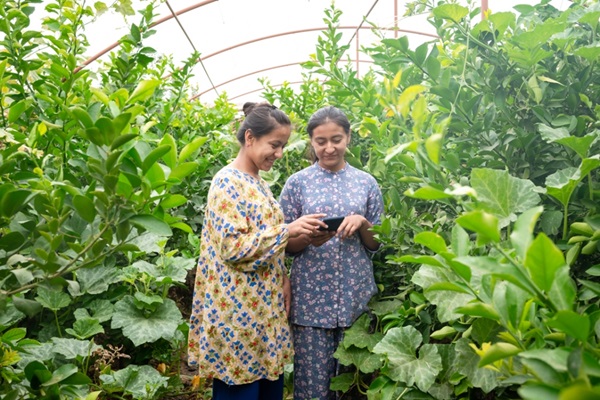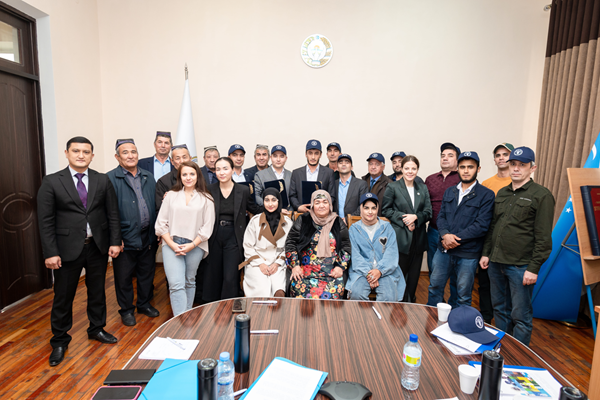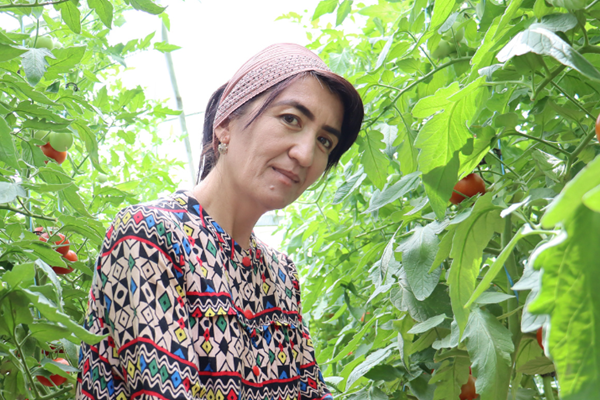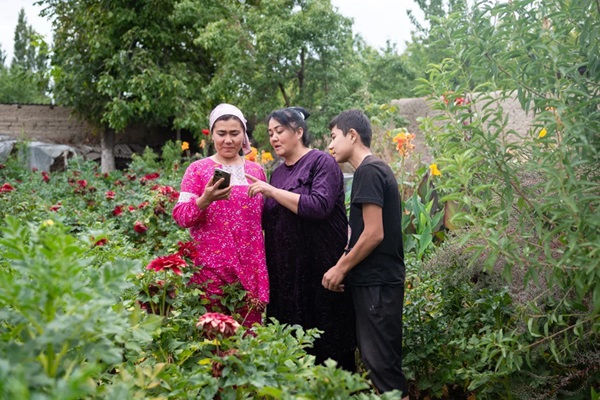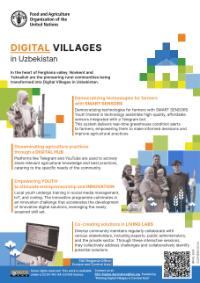Located in Uzbekistan's Fergana Valley, Novkent is a close-knit community covering an area of 160 ha, with 568 households that actively contribute to its growth. Agriculture plays a pivotal role in community life, with the majority of smallholder farmers specializing in the cultivation of raspberries, lemons and vegetables. Some 131 households in the village are currently engaged in greenhouse agriculture, typically behind their houses, and this number is steadily increasing.
Novkent and Yuksalish, situated side-by-side in Uzbekistan's Fergana region, were once a single community but were separated under regulations applying strict size limitations on Mahallas. The two settlements today operate as separate entities, with around 2500 residents in each, but despite this administrative division, their shared heritage ensures their ongoing cooperation. They are thus considered a single rural community with shared interventions under the Digital Villages Initiative (DVI) transformation process, and both communities are committed to leveraging digital solutions and shared resources to tackle common challenges.
Challenges
Knowledge sharing among farmers is limited to close circles, restricting the dissemination of different farming techniques and experiences. Furthermore, there are no advisory services available in the village, leaving farmers without guidance on plant diseases.
DVI interventions
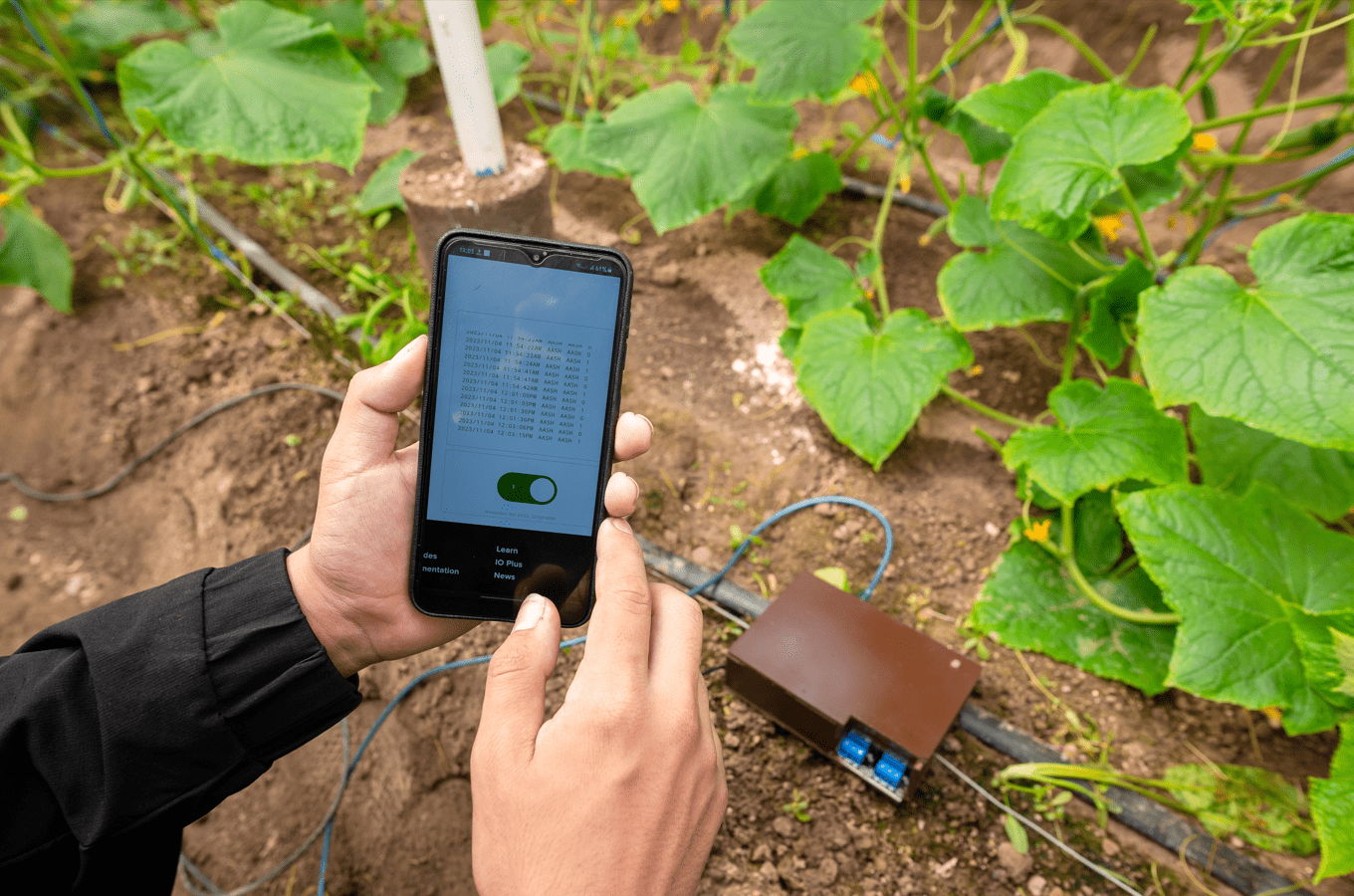
Smart IoT sensors for greenhouse management
High-quality yet low-cost smart sensors based on Internet-of-Things (IoT) and open source have been piloted in greenhouses in Novkent and Fergana Valley. The sensors provide information on temperature, light, humidity and soil moisture in the greenhouse, allowing farmers to make smart and data-driven decisions.
Read more
Youth innovation programme
Young local people are mobilized through dedicated coding training (DVI camp) and by an innovation challenge (Hack4DigitalVillages), encouraging them to develop digital innovations that meet the needs of the rural communities together with mentors and farmers.
Read more.jpg?sfvrsn=4663e6fa_3)
DVI hub
Centralized platform for information, resources and community engagement through which farmers gain access to timely and relevant agricultural insights and continuous learning, facilitating peer-to-peer exchanges of knowledge through dedicated YouTube and Telegram channels.
Read more
Living labs
Regular physical or virtual meetings that bring together rural communities and a diverse range of stakeholders (farm advisors, agronomists, university professors, local administration representatives, private sector companies, etc.) to collaborate in the identification and testing of innovative solutions that address the issues affecting the community.
Read more
DVI twinning with Hisor valley (Tajikistan)
Formal cooperation with Lolazor, pilot Digital Village of Tajikistan, to exchange insights into agricultural best practices, share knowledge on technology utilization, enhance digital literacy and skills, and more. As part of the Digital Villages Twinning programme, Fergana State University and Tajik Agrarian University also signed a Memorandum-of-Understanding (MoU).
Read more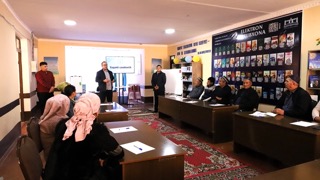
Capacity development programme
Training programme aimed at providing farmers with essential digital and entrepreneurial skills, including training in digital literacy, social media management and e-commerce strategies with a view to enhancing their digital skills, business operations and market reach.
Read moreHighlights
Video
Hack4DigitalVillages: youth co-develop digital solutions with farmers in rural Fergana, Uzbekistan
17/04/2022
In 2023, FAO within the Digital Villages Initiative (DVI) supported the implementation of a special youth digital innovation programme in Uzbekistan aimed at mobilizing young talents in the Fergana valley to co-develop digital solutions to solve the challenges of their own rural communities.
Bridging the rural divide in Uzbekistan with the Digital Villages Initiative
17/04/2022
The Digital Villages Initiative in Uzbekistan aims to bridge the digital divide and foster entrepreneurship in rural areas by equipping farmers from pilotvillages with digital and agri-entrepreneurship skills, among other interventions.
Digital Villages Camp: youth innovation for agricultural challenges
17/04/2022
The FAO Digital Villages Initiative (DVI) supported the implementation of a special youth digital innovation programme in Uzbekistan aimed at mobilizing young talents in the Fergana valley to harness digital technologies to solve the challenges of their own rural communities.
Digital Villages in Action in Europe and Central Asia: Focus on Uzbekistan
10/01/2024
Digital Villages in Action in Europe and Central Asia virtual event launched DVI actions in eight countries, bringing together policy actors, stakeholders, partners, and beneficiaries. Katerina Antanevich, FAO Digital Agriculture Specialist and Sociologist joined the session live from Novkent village to discuss Uzbekistan’s progress and plans for the introduction of DVI in the country.

